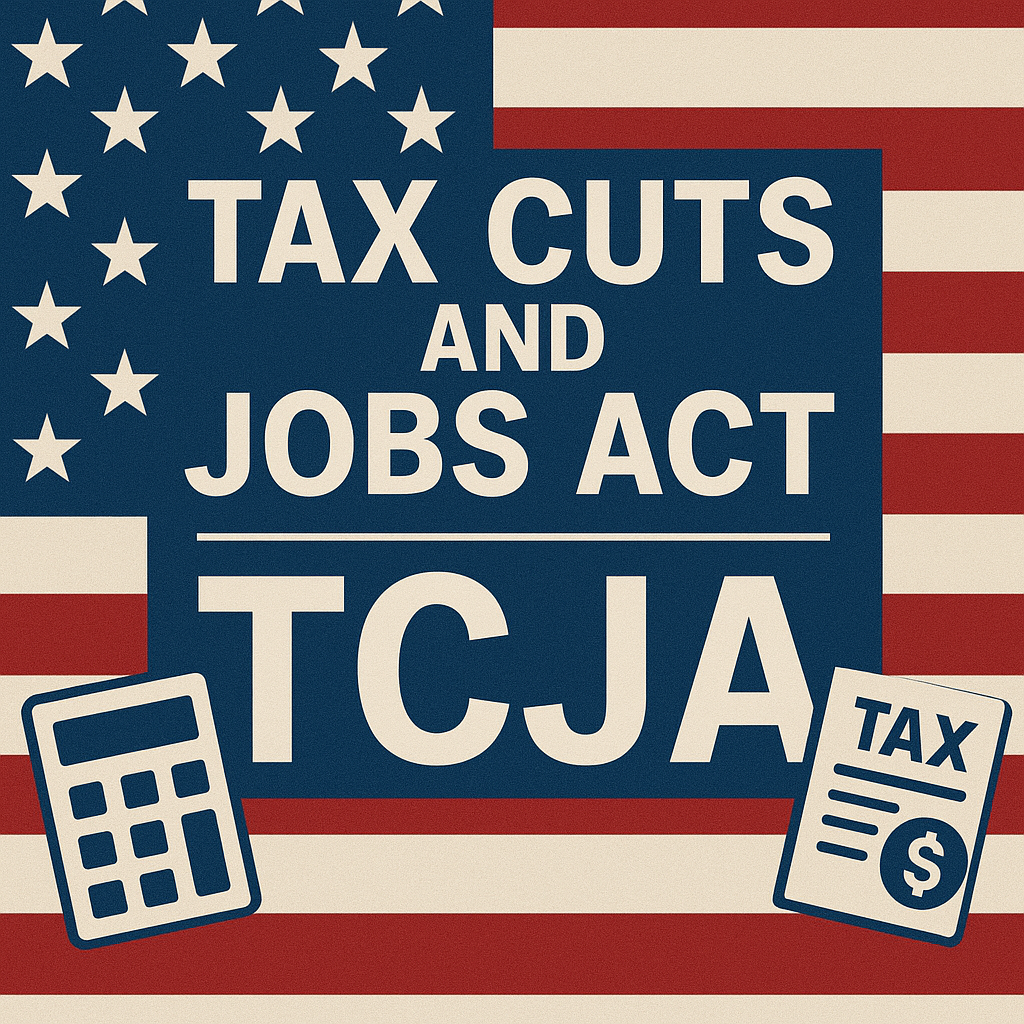The Tax Cuts and Jobs Act (TCJA), passed in 2017, ushered in sweeping changes to the U.S. tax code—reducing tax rates, doubling the standard deduction, limiting certain itemized deductions, and increasing estate tax exemptions. But many of these provisions were temporary, and without congressional intervention, they are set to expire at the end of 2025.
If Congress allows the TCJA to sunset, taxpayers in 2026 could face a dramatically different tax landscape. Understanding what’s at stake—and how to prepare—can make a substantial difference in your financial future.
Key Changes to Expect in 2026
Unless legislation is passed to extend the TCJA, here are some of the most impactful changes you may see:
- Higher Individual Tax Rates: The current seven tax brackets (ranging from 10% to 37%) would revert to the pre-TCJA rates, with the top rate jumping back to 39.6%. For high earners, this could significantly increase tax liabilities.
- Reduced Standard Deduction: The nearly doubled standard deduction will shrink—dropping from $13,850 (single) and $27,700 (married filing jointly) in 2023 back to around $6,500 and $13,000, respectively (adjusted for inflation).
- Return of Personal Exemptions: These were eliminated under TCJA but are slated to return, which could partially offset the smaller standard deduction for larger households.
- Itemized Deduction Changes: The cap on state and local tax (SALT) deductions may disappear, but other pre-TCJA limitations will return—meaning fewer deductions for mortgage interest, medical expenses, and more.
- Child Tax Credit: The expanded child tax credit will revert to its lower pre-TCJA value, and the income phase-out thresholds will drop, limiting the credit’s availability to middle-income families.
- Estate and Gift Tax Exemption Reduction: The current estate tax exemption (over $13 million per individual) is scheduled to be cut roughly in half. This could have major implications for families with significant assets, business owners, and those looking to transfer wealth.
Why Proactive Tax Planning in 2025 Matters
For many taxpayers—especially high-income earners, retirees, and small business owners—the pending expiration of TCJA presents both a challenge and an opportunity. Acting now, while the TCJA is still in effect, can allow you to lock in favorable tax treatment and avoid unpleasant surprises down the road.
Here are a few planning strategies to consider:
1. Roth Conversions
With tax rates potentially rising, 2025 may be the ideal year to convert traditional IRA or 401(k) funds to a Roth account. You’ll pay taxes now at today’s lower rates, but enjoy tax-free withdrawals in retirement—even if rates increase.
2. Accelerating Income or Deductions
If your income fluctuates, you may benefit from realizing more income in 2025 while rates are lower. Similarly, prepaying deductible expenses—such as charitable contributions or medical costs—could help maximize current deductions.
3. Estate and Gifting Strategies
High-net-worth individuals should consider using the temporarily expanded estate and gift tax exemption before it’s reduced. Gifting strategies, family trusts, and business succession planning should all be revisited in 2025.
4. Business Entity Review
Small business owners may want to reassess their entity structure, especially if the 20% Qualified Business Income (QBI) deduction expires as scheduled. Choosing the right entity—S-Corp, LLC, partnership—can have a lasting tax impact.
Financial Planning Implications: More Than Just Taxes
The expiration of the TCJA isn’t just a tax issue—it’s a financial planning issue. Changes in income taxes, estate exemptions, and deductions can all ripple through your retirement strategy, investment planning, and long-term wealth transfer goals.
If you’re not already working with a tax-focused financial planner, 2025 is the year to start. The coordination between your CPA and your financial advisor could be the difference between a reactive scramble in 2026 and a confident, optimized plan.
The clock is ticking. While tax policy can always change, the current laws are clear: the TCJA will sunset after December 31, 2025, unless Congress acts. Whether you’re a retiree on a fixed income, a business owner nearing exit, or a high-income professional building long-term wealth, the steps you take in 2025 can have a profound effect on your financial picture in 2026 and beyond. Connect with us today to see how this could affect your financial picture.

